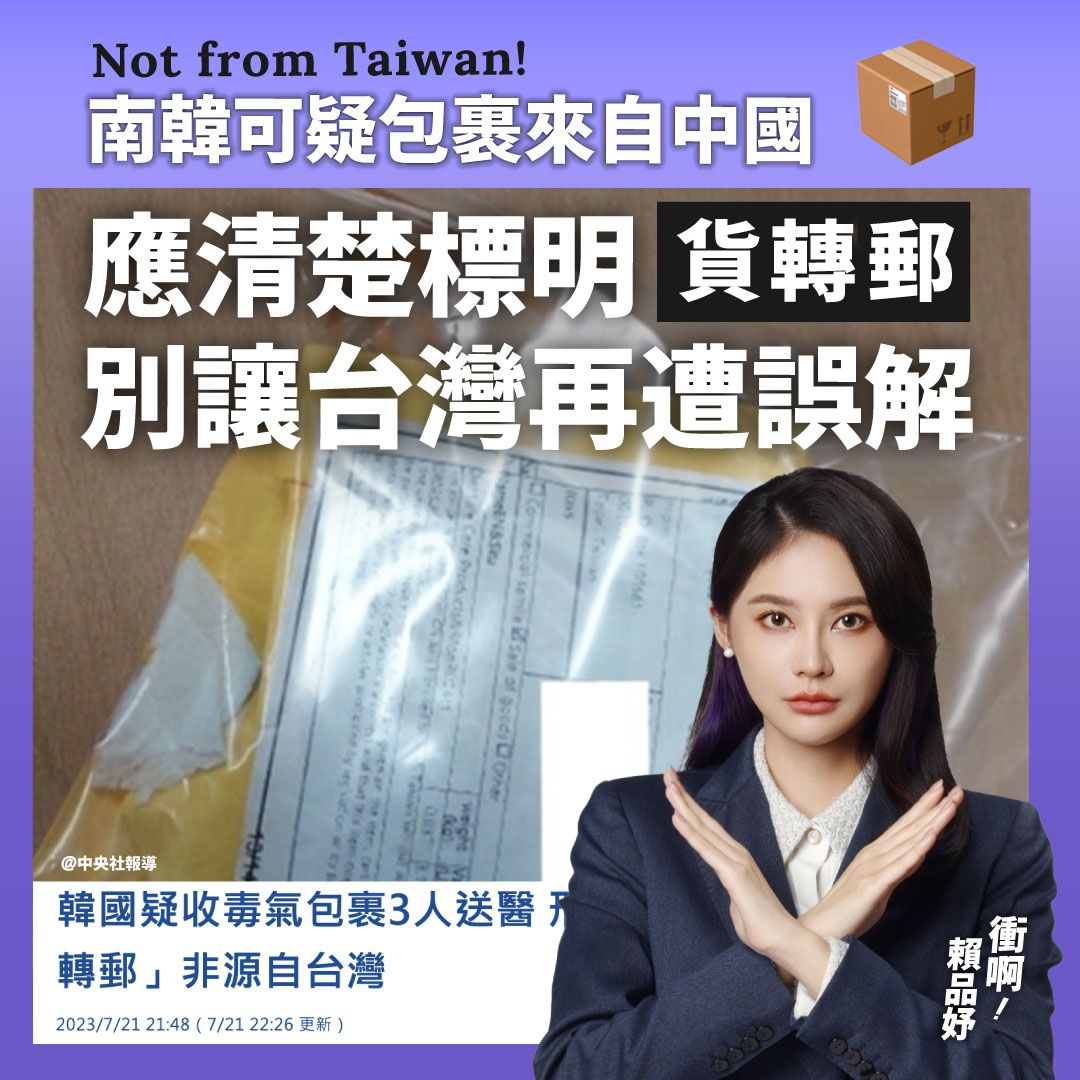by Brian Hioe
語言:
English
Photo Credit: 姜明雄/WikiCommons/CC0
PANIC IN SOUTH KOREA has broken out mysterious packages marked as having been shipped from Taiwan by the Chunghwa Post. The Chunghwa Post is Taiwan’s state-run mail service.
In particular, the packages are reported as having caused breathing difficulties in those that opened the packages, though the South Korean police have reported not finding anything odd with the packages after testing them. This was first reported after three care home staffers in Ulsan reported feeling sick after opening such a package. The three care home workers were later hospitalized. While police suspected toxic gas, no poisonous or radioactive materials have been found to date.
Since then, however, around 1,000 such similar incidents have been reported, with around 100 packages having been sent from Taiwan. Other reports suggest that around 30 suspicious packages, half of which originate from Taiwan and have the same address listed as the Ulsan package, have been found. The address is P.O. Box 100561-003777, Taipei, Taiwan is listed on some of the packages.
Six cases were reported in the Seoul Metropolitan Area. 1,700 were evacuated from a postal office in Myeongdong, Seoul after one such package was found.
The original package at the care home is known to have been transshipped through Taiwan, though it originated from Shenzhen. The package itself did not pass through Taiwan, but was processed in a Chunghwa Post facility. Packages are sometimes sent through Taiwan from China to other destinations because this is cheaper, as well as sometimes due to insufficient Chinese mail capacity.
Given the potential for the incident to impact perceptions of Taiwan in South Korea, transshipments from China to South Korea have been halted. Members of the public in South Korea have been instructed to keep an eye out for black or yellow packages labeled as sent from Taiwan by the Chunghwa Post.
 Image released by DPP legislator Lai Pin-yu on the case. Photo credit: Lai Pin-yu
Image released by DPP legislator Lai Pin-yu on the case. Photo credit: Lai Pin-yu
The Ministry of Justice Investigation Bureau and Criminal Investigation Bureau have set up a unit to investigate the case, which will work with South Korean law enforcement. The return address and other information on the original package sent to Ulsan was false, apart from the destination address.
Attention on the case is such that legislators such as Lai Pin-yu have called for an investigation, so as to prevent Taiwan’s image from being affected in South Korea. This takes place at a time in which Taiwan has seen an uptick in tourists visiting from South Korea. Other packages have been reported as sent from Malaysia, Ukraine, and Uzbekistan.
It is possible that the packages contain a toxic chemical that has not yet been detected by police. At the same time, South Korean law enforcement also suspect that the packages may originate as part of a scam in which scammers send out packages to addresses they have illegally obtained to try and boost ratings on sellers’ sites. Most packages contained small, cheap goods such as lip balm. This scam is referred to as a “brushing scam.” Chinese e-commerce websites such as Alibaba have reported brushing scams in the past.
During the COVID-19 pandemic, panic ensued in the US after packages of seeds were sent out to individuals that did not order them. This, too, was later suspected to be part of a brushing scam. The Chinese government later stated that the labels on the packages were forged and requested that the packages be sent back to China for investigation.
In the course of this incident, some packages were sent from Taiwan to Canada. These, too, were transhipped from another location through Taiwan.
The source and intent of the packages remain to be clarified, then. It is not impossible that the original case that led to hospitalization occurred due to other factors, causing panic about packages sent to South Korea as part of a brushing scam. Nevertheless, quick action may be necessary because of the potential to affect views of Taiwan in South Korea. This would also not be the first time that international perceptions of Taiwan have stood to be affected because of its political and economic links with China.

